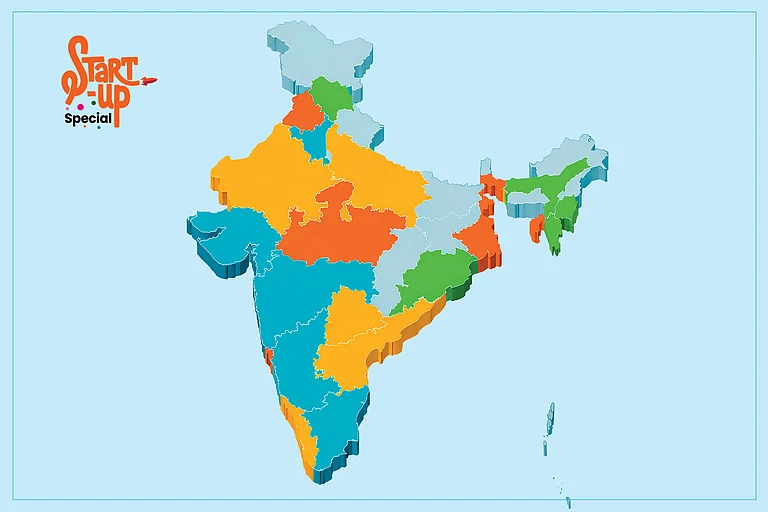Religious tech start-up Vama is reportedly all set to join Open Network for Digital Commerce (ONDC). ONDC is a government backed digital commerce platform.
The company already has 400,000 monthly users as per the company’s founder Manu Jain. There has been a surge in religious and astrology start-ups in India. Growing consumer interest in this area is also attracting investors to spend their money on them.
The demand for technology-based solutions in this area has been increasing as millennials and Generation Z seek astrology for guidance on multiple fronts such as career and relationships. “Start-ups are capitalising on this trend by offering innovative, app-based platforms and services that blend traditional astrological practices with modern technology,” says Navin Honagudi, managing partner, Elev8 Venture Partners.
Elev8 recently lead the Series-A funding of astrology start-up Astrotalk with an investment of around $7 billion in June this year. Astrotalk raised $14 million to expand its footprints in overseas market including USA, UK, Canada and West Asia. Astrotalk reportedly anticipates its revenue to more than double to Rs 620-630 crore in FY24, up from Rs 283 crore the previous year.
Redseer Strategy Consultants projects that India's online astrology sector will increase from $102-106 million in FY24 to $930-1070 million by FY30. Additionally, there is a $35 billion Indian market for faith and religious items that is ready for tech disruption in a variety of industries, as per Redseer. It also says that India's online astrology market, which is presently valued at $102-106 million, is predicted to double by FY30.
What is Driving the Surge?
As per experts, since the onset of Covid-19 pandemic, there has been a surge in demand in this sector. The uncertainty that prevailed during the pandemic made people rely more on faith and belief, add experts. Popular apps such as Vama, which provides religious and astrology services; Bodhi, which focuses on astrology; and AppsForBharat, which creates web and mobile applications for spiritual and devotional guidance, were launched in 2020.
The consecration of the Ram Temple by the BJP led NDA government was another event that led to a surge in religious and astrological start-ups. The Ram temple that was built in Ayodhya, gave an opportunity to spiritual start-ups to explore the market. The surge started with the spiritual start-ups offering a virtual tour of the temples, enabling remote offerings. Speaking about the Ram Mandir inauguration in Ayodhya, Vama's Jain informed the Economic Times that this month has seen a 35 per cent rise in organic searches on Vama, with more people requesting pujas.
Other factors include accelerated digital/technology adoption driving personalisation of services, astrology catering to the mental health market and the influence of social media, adds Amit Sharma, General Partner, Cactus Partners. India has a high internet penetration with more than 800 million active internet users at present. By 2025, the active internet user base in India is expected to grow to 900 million as per industry body IAMAI and market data analytics firm Kantar.
Will the VC interest continue?
Any reason a venture capitalist invests in a firm is when they see profit in the market. But the question arises: Will the interest persist? Venture capitalist interest in the spiritual and astrological tech space is set to grow significantly, add experts. Honagudi says that investors are increasingly attracted to profitable businesses, and the spiritual and astrology tech platforms are proving to be just that.
Urbanisation is growing, and demand from the Indian diaspora is increasing. As these services become more accessible and integrated into daily decision-making, they are likely to gain even greater popularity. This trend makes the sector attractive to venture capitalists, offering potential for both profitable returns and a positive societal impact, adds Honagudi.
“The key demand that these start-ups cater to, in our view, is the mental health, wellness and self-care market in the current complex economic, social and emotional environment. This is an important segment, and VCs see astrology’s potential to build a sizeable business in this space,” adds Sharma.
The Shift from Offline to Online Can Be Hard
Religion and spiritualism have been an offline thing for a very long time in India. While the shift from offline to online sounds exciting, it comes with its set of challenges.
“For starters, challenge for start-ups and VCs is to keep the authenticity and personal touch of old methods in a digital environment,” adds Honagudi.
Experts also point out that ensuring that online experiences like virtual poojas or astrological consultations are as fulfilling as their offline counterparts is essential. However, there are technological hurdles, such as creating secure, user-friendly platforms that can manage high traffic while delivering a seamless experience. Additionally, persuading a traditional audience to adopt these online services is challenging. Successfully bringing these practices online will require addressing these challenges while maintaining a balance between innovation and tradition.
“Building trust and credibility in a digital format is crucial, as many potential users may be skeptical about the effectiveness of online consultations compared to traditional, in-person experiences,” says Milan Sharma, founder and MD, 35North Ventures.
Established companies with a solid reputation compete with new start-ups, so they must offer distinctive value propositions to draw in customers. It's also possible that a lot of astrologers lack the digital abilities necessary for efficient online service delivery, which emphasises the need for assistance and training, adds Milan.
With an increase in the number of religious and astrology start-ups in India, it remains to be seen how the growth trajectory will be for these start-ups and if VC interest is something that will be evolving.
































